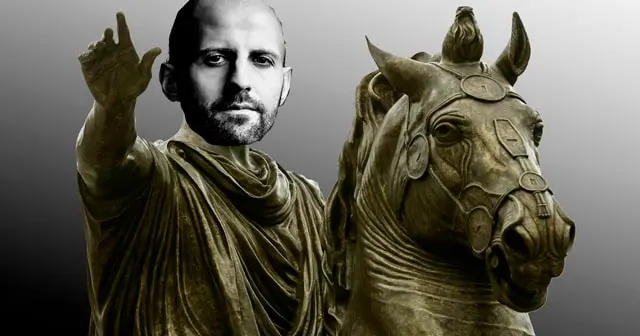
In our fast-paced world, modern men face a multitude of challenges—from work stress and relationship hurdles to the constant pressure to succeed. Many look for a structured way to manage these pressures, and surprisingly, ancient wisdom offers effective solutions. Modern Stoicism provides tried-and-tested principles that empower men to reclaim inner strength, gain clarity in decision-making, and live with purpose. In this article, we explore the fundamentals of stoic philosophy, show how its timeless lessons can be applied to contemporary life, and share practical strategies to foster resilience, emotional balance, and personal growth.
The Foundations of Modern Stoicism
Modern stoicism is a contemporary adaptation of ancient insights from Greek and Roman philosophers like Epictetus, Seneca, and Marcus Aurelius. Their teachings focused on building inner resilience and managing emotions wisely. Today, these eternal ideas are refined to help men navigate modern challenges with clarity and purpose. At its core, stoicism teaches that while we cannot control external events, we can control our reactions.
In this section, we explore the historical context and central tenets of stoicism. Emphasizing self-discipline, inner calm, and intentional living, stoicism is not about withdrawing from the world but rather about finding strength in measured responses to adversity. In an era overloaded with distractions, these enduring principles offer a much-needed anchor for a stressed mind.
A particularly relevant element of modern stoicism is the dichotomy of control: distinguishing what we can change from what we must accept. Embracing this idea allows men to focus on self-improvement and meaningful action rather than on uncontrollable external circumstances. This mindset shift is crucial in today’s unpredictable world.
Stoic Principles for the Modern Man

For the modern man, several stoic principles serve as a guide to developing resilience and inner strength. These include the disciplines of perception, action, and will. Each discipline helps men detach from chaotic external events and focus on values that bring success and inner contentment.
A key concept is understanding that our perception shapes our reality. Reframing challenging situations as opportunities for growth rather than threats reduces anxiety and enhances mental clarity. This empowering mindset is transformative and forms the cornerstone of stoic wisdom.
Another important principle is practicing voluntary discomfort. Intentionally facing minor hardships builds mental fortitude and prepares men for inevitable difficulties. Whether dealing with financial setbacks or emotional challenges, embracing discomfort as a path to resilience provides a practical framework for growth in modern life.
Discipline of Perception
The discipline of perception emphasizes the value of objective judgment. Modern men often experience overwhelming emotional responses that cloud rational decisions. Learning to observe these feelings without immediate reaction is essential for long-term success.
This practice involves questioning assumptions and biases, replacing reactive thoughts with analytical clarity. This clarity can significantly reduce conflict in both personal and professional settings.
Discipline of Action
This principle is about deliberate, ethical action in the face of life’s challenges. Instead of getting entangled in distractions or negativity, the modern stoic acts according to clearly defined values and purpose.
By prioritizing intentional, values-driven actions, men create a framework for consistent progress, even during turbulent times. Intentional action is not only empowering but also builds true character.
Practical Applications in Daily Life
Integrating stoicism into daily routines might seem abstract at first, but there are plenty of practical applications that allow men to directly benefit from this philosophy. Whether in work decisions, personal relationships, or self-care practices, modern stoicism offers a clear roadmap for purposeful living.

For example, adopting a daily reflection practice, such as journaling, can help identify emotional triggers and recurring patterns. A few minutes of introspection each day enables a man to review his actions and adjust habits that do not serve his well-being. Regular self-assessment builds clarity and fortifies resolve.
Another tip is to establish a set of personal values rooted in stoic virtues like temperance, courage, justice, and wisdom. Using these principles as a guide during important decisions—at work or home—can lead to more positive outcomes. Viewing setbacks as learning opportunities reinforces resilience and promotes long-term transformation.
Mindfulness and Meditation
Mindfulness practices are central to applying stoic principles daily. Simple meditation routines clear the mind, reduce reactivity, and foster a calm inner dialogue.
Even dedicating just a few minutes a day can create the mental space needed for thoughtful decision-making. This practice builds the mental discipline essential to stoicism.
Journaling and Reflection
Journaling is an effective tool for self-reflection, helping modern men align daily actions with long-term goals. It offers a record of progress, challenges, and growth areas.
Taking time regularly to reflect on both successes and setbacks reinforces stoic principles vital for personal development and stress management.
Challenges and Criticisms
While modern stoicism is celebrated for its practical benefits, it also faces its share of criticisms and challenges. Some argue that stoicism encourages emotional suppression rather than a healthy processing of feelings. Critics worry that the philosophy might foster passivity in the face of injustice or adversity.
However, it is important to emphasize that modern stoicism does not advocate for the elimination of feelings; rather, it promotes a controlled and balanced engagement with emotions. The goal is to respond with integrity and wisdom instead of being overwhelmed by raw sentiment.

Critics also note that applying ancient philosophies in today’s context can sometimes seem impractical given our vastly different social and cultural landscape. Still, when integrated with modern science and psychology, stoicism proves remarkably adaptable and beneficial. Many skeptics are now discovering that structured reflection and ethical living yield positive outcomes even in contemporary complex environments.
Addressing Misconceptions
A common misconception is that stoicism promotes an emotionless or detached existence. In truth, the philosophy is about making deliberate choices rather than being controlled by emotions.
By prioritizing rational thought over impulsive reactions, stoicism teaches balance. This balanced approach enables a man to experience his emotions fully while still maintaining the discipline necessary for wise decision-making. Clarity in emotional management is key.
Modern Adaptations Amidst Critiques
Adapting stoic teachings for today’s fast-paced world requires thoughtful reinterpretation. While some ancient ideas may appear outdated, many modern adaptations have emerged, incorporating cognitive behavioral techniques that echo the original philosophy.
These modern approaches have been successfully implemented in areas such as mental health and leadership training, demonstrating the continued relevance and value of stoic thought in our time.
Resources and Continued Learning
For those eager to further explore modern stoicism, a wealth of resources is available. Books, podcasts, seminars, and online communities specifically cater to men seeking personal growth and resilience through stoic principles. These materials deepen your understanding of both the history and modern application of this timeless philosophy.
Notable readings include classics like ‘Meditations’ by Marcus Aurelius and ‘A Guide to the Good Life’ by William B. Irvine, which reinterpret ancient wisdom for today’s audience. Podcasts and online courses also break down stoic principles into actionable strategies that can be easily incorporated into daily life.
Engaging with online communities and discussion groups further enhances your understanding of stoicism. Sharing insights and experiences with like-minded individuals creates a supportive network that enriches your learning process. Continual learning and practice are essential to seamlessly integrating stoic principles into your everyday routine.

Recommended Books and Podcasts
An array of literature is available for those keen on mastering stoic practices. Classics such as ‘Letters from a Stoic’ by Seneca and ‘The Daily Stoic’ by Ryan Holiday offer both inspiring narratives and practical advice.
Podcasts like ‘The Practical Stoic’ and various TED Talks on mindfulness and resilience present modern perspectives that mix ancient wisdom with today’s realities.
Online Communities and Courses
Online forums, social platforms, and dedicated courses are excellent resources to boost your mastery of modern stoicism. These communities connect enthusiasts from around the globe, offering a platform to exchange ideas and effective strategies for overcoming everyday challenges.
Several reputable educational sites offer courses specifically designed to integrate stoic philosophy into modern life, making the journey accessible and engaging. Community support is invaluable for long-term personal growth.
Contenido Adicional
To deepen this guide, we explore how adopting a stoic mindset can elevate both relationships and career performance. Modern men confront personal as well as professional challenges where emotional intelligence is key. By embracing the stoic idea of ‘amor fati’—loving one’s fate—men can turn setbacks into catalysts for innovation and personal evolution.
Another vital aspect of modern stoicism is combining empathy with discipline. In relationships, this blend allows a man to appreciate others’ feelings without compromising his own values, creating an environment of mutual growth. Emotional responsibility and disciplined action work together to build strong personal bonds as well as professional networks.
In the business world, applying stoic principles enhances decision-making and stress management. Leaders who focus on what they can control navigate market uncertainties with calm and strategic vision. This philosophy also inspires teams to overcome adversity collectively through trust and collaboration.
Personal health and wellness also benefit from stoic practices. Regular self-reflection on both physical and mental states, alongside disciplined exercise, mindful nutrition, and sufficient sleep, supports a balanced life. These habits resonate with stoic virtues of balance and self-mastery.
Mastering modern stoicism isn’t about denying emotions or ignoring vulnerabilities. It’s about cultivating clarity, perseverance, and virtue. When men incorporate these stoic principles into their daily lives, they gain the ability to face life’s challenges with grace and determination. Embracing this philosophy paves the way for a more fulfilling and empowered life. By learning, practicing, and adapting stoic wisdom to modern dilemmas, any man can develop a resilient character and achieve a balanced lifestyle. The journey toward personal virtue and tranquility is lifelong, offering immense rewards both professionally and personally.